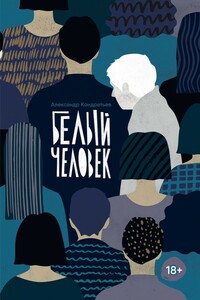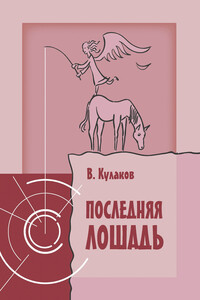36 Arguments for the Existence of God - [47]
“Well, first they thought I was a dead person who had come back from the sky country. They kept asking me how I had died, what it was like to be dead. They have a pretty complicated mythology, mostly derived from their heavy use of hallucinogens. The men get high every day, and believe me, that stuff is powerful. It also makes them drip long grotesque strands of green snot, which would be enough to get Jean-Jacques to rethink that noble-savage shtick. They finally accepted that I’d never died when I came down with a head cold. Dead people don’t sneeze. But they were never completely convinced that I was a woman. Their name for me is Suwäayaiwä, which roughly translates as ‘a whole lot of woman.’”
She laughed again. The words she had pronounced-her name, the word “Onuma” itself-were heavily nasalized, almost a snort. If she was making this all up, she was really good, better even than Gideon, who also had a way with extended put-ons, and whom Cass spotted just as Jonas Elijah Klapper was entering the room.
“Frankly, I like it a lot better than ‘Roz.’” She’d nasalized “Roz,” too.
Jonas Elijah Klapper was flanked by the three men who had introduced him at Sanders Theatre, and the crowd immediately shifted to swarm around them like worker bees around the queen. Gideon was there in the attending circle, and, almost instantaneously, all five of the other Klapper students materialized. Now Cass seriously wanted the girl in dreadlocks to go away. It was enough that she had made him miss the thrust of the Prufrock Lecture. He didn’t want to miss hearing what was going on now around Jonas Elijah Klapper.
“Well, Suwäayaiwä,” he said, putting out his hand to shake hers, “it’s been a pleasure meeting you. Good luck here in Cambridge-teri.”
She laughed, and again he couldn’t resist her laughter’s invitation to come along for the ride and laugh along with her. She shook Cass’s hand, and he gracefully abandoned her, hurrying to be in Klapper’s proximity.
But Roz found him again before the reception was over. Cass and Gideon and Miriam and Nathan and Ezra and Zack and Joel were standing in a huddle. The group of seven had supped on canapés and spreads and sipped from Harvard’s excellent sherry. None had felt this good since transplanting from New York.
“Are you going to the dinner?” Roz asked Cass. He had forgotten all about the girl in dreadlocks who might or might not have been christened “a whole lot of woman” by a tribe that might or might not exist.
“What dinner?”
“The dinner for Klapper at Robert Harris Chapman’s house.”
“Are we?” Cass asked Gideon.
“Un-uh.” He shook his head no. “That’s not for us.”
“I just got invited,” said Roz.
“By whom?” Gideon asked.
“By Robert Harris Chapman. He’s a perfectly wonderful man, funny as hell in an urbane kind of way. You’ll love him. He teaches drama and English here, and he’s the head of the Loeb Drama Center. I heard from Doris Turner over there”-Roz motioned with her head toward a woman of formidable amplitude and mien, who was a Shakespearean scholar at Harvard and had indeed been cited by Professor Klapper as “the premier authority on the Sonnets 101 to 116”-“that his home is decorated like a Moroccan sultan’s and that he mixes the meanest drinks in town. Do you want to come?” she asked Cass. “It seems only fair. After all, I got myself into this shindig by pretending I was with you!”
Cass laughed along with her. Suwäayaiwä was a force of nature not to be withstood.
“No thanks,” he said, withstanding nevertheless.
“Why not? When are you going to get an opportunity like this again? You can see how your adviser comports himself with his peers. You can peer behind the seven veils at the heavenly hosts and see what goes on when you aren’t looking.”
“It’s not my style to finagle my way into a place I don’t belong.”
“Okay, I can understand that. No, on second thought, I can’t. I’ll just go tell Robert that I’m not going to be able to make it after all, and then you and I can go off and you can explain to me what exactly is your style.”
They went to the 1369 Jazz Club. Roz had been in Cambridge for a couple of months. She was here to pick up some evolutionary biology, she said, attending what everyone called the Simian Seminar, which was given in the living room of a biological anthropologist. Cass and Roz walked the several blocks to the jazz club-Roz had been here once before but had been driven, so she wasn’t exactly sure how to find her way, but she did-and she had talked a lot about Absalom and about the Onuma and about how strange it was for her to be in “Cambridge-teri.” She loved that Cass had called it that. “It puts it into perspective for me.”
Roz was a self-described jazz-junkie. She asked the man at the door, “Who’s on?” and when she heard that Raphé Malik was putting in an appearance, she let out a war cry she must have picked up in Onumaland. Cass was surprised to discover he wasn’t embarrassed. Roz’s resistance to the emotion communicated something of itself to those she was with. This was the first sign of what Cass would come to think of as the Margolis magic, waffling on the question of whether it was black or not.

В книге рассказывается история главного героя, который сталкивается с различными проблемами и препятствиями на протяжении всего своего путешествия. По пути он встречает множество второстепенных персонажей, которые играют важные роли в истории. Благодаря опыту главного героя книга исследует такие темы, как любовь, потеря, надежда и стойкость. По мере того, как главный герой преодолевает свои трудности, он усваивает ценные уроки жизни и растет как личность.

В городе появляется новое лицо: загадочный белый человек. Пейл Арсин — альбинос. Люди относятся к нему настороженно. Его появление совпадает с убийством девочки. В Приюте уже много лет не происходило ничего подобного, и Пейлу нужно убедить целый город, что цвет волос и кожи не делает человека преступником. Роман «Белый человек» — история о толерантности, отношении к меньшинствам и социальной справедливости. Категорически не рекомендуется впечатлительным читателям и любителям счастливых финалов.

Кто продал искромсанный холст за три миллиона фунтов? Кто использовал мертвых зайцев и живых койотов в качестве материала для своих перформансов? Кто нарушил покой жителей уральского города, устроив у них под окнами новую культурную столицу России? Не знаете? Послушайте, да вы вообще ничего не знаете о современном искусстве! Эта книга даст вам возможность ликвидировать столь досадный пробел. Титанические аферы, шизофренические проекты, картины ада, а также блестящая лекция о том, куда же за сто лет приплыл пароход современности, – в сатирической дьяволиаде, написанной очень серьезным профессором-филологом. А началось все с того, что ясным мартовским утром 2009 года в тихий город Прыжовск прибыл голубоглазый галерист Кондрат Евсеевич Синькин, а за ним потянулись и лучшие силы актуального искусства.

Семейная драма, написанная жестко, откровенно, безвыходно, заставляющая вспомнить кинематограф Бергмана. Мужчина слишком молод и занимается карьерой, а женщина отчаянно хочет детей и уже томится этим желанием, уже разрушает их союз. Наконец любимый решается: боится потерять ее. И когда всё (но совсем непросто) получается, рождаются близнецы – раньше срока. Жизнь семьи, полная напряженного ожидания и измученных надежд, продолжается в больнице. Пока не случается страшное… Это пронзительная и откровенная книга о счастье – и бесконечности боли, и неотменимости вины.

Книга, которую вы держите в руках – о Любви, о величии человеческого духа, о самоотверженности в минуту опасности и о многом другом, что реально существует в нашей жизни. Читателей ждёт встреча с удивительным миром цирка, его жизнью, людьми, бытом. Писатель использовал рисунки с натуры. Здесь нет выдумки, а если и есть, то совсем немного. «Последняя лошадь» является своеобразным продолжением ранее написанной повести «Сердце в опилках». Действие происходит в конце восьмидесятых годов прошлого столетия. Основными героями повествования снова будут Пашка Жарких, Валентина, Захарыч и другие.

В литературной культуре, недостаточно знающей собственное прошлое, переполненной банальными и затертыми представлениями, чрезмерно увлеченной неосмысленным настоящим, отважная оригинальность Давенпорта, его эрудиция и историческое воображение неизменно поражают и вдохновляют. Washington Post Рассказы Давенпорта, полные интеллектуальных и эротичных, скрытых и явных поворотов, блистают, точно солнце в ветреный безоблачный день. New York Times Он проклинает прогресс и защищает пользу вечного возвращения со страстью, напоминающей Борхеса… Экзотично, эротично, потрясающе! Los Angeles Times Деликатесы Давенпорта — изысканные, элегантные, нежные — редчайшего типа: это произведения, не имеющие никаких аналогов. Village Voice.